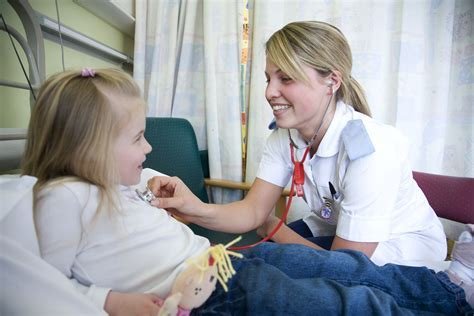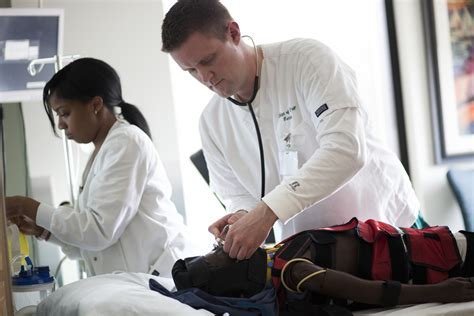Discovering RN jobs near me doesn’t have to be hard. Even with the continually shifting healthcare industry, there are various resources out there that can give nurses aid in finding the right fit.
One of the top methods for discovering RN roles is through using internet job search websites. These portals enable you to look through countless openings across our nation and procure the autonomy and amenability that you merit.
Effortlessly refine your search outcomes by locality, competence level, and area of expertise so that you only notice jobs that correspond with your capabilities and desires. Furthermore, many of these pages give advantageous tips and guidelines on how to make your CV stand out from other candidates.
By having access to these instruments, uncovering an RN job was never simpler!
How to Get Hired as a Nurse
Getting a nursing license necessitates a blend of instruction, acquaintance, and certification. The initial step is to acquire an education in nursing. This may be accomplished by earning a bachelor’s degree in nursing, an associate’s qualification in nursing, or a diploma from an accepted nursing program.
During these courses of study, learners will grasp the basics of patient care and get on-the-job knowledge through clinical rotations. Additionally, they will formulate verbal communication capabilities which are crucial for networking with patients and fathoming their necessities.
Once learning the prerequisites has been finished, nurses must earn licensure by taking the National Council Licensure Examination (NCLEX). This exam analyzes comprehension of medical terms and processes as well as problem-solving skills needed to give superior care.
After passing the NCLEX, nurses can apply for state licensing and begin functioning as a registered nurse. With extra proficiency and continuing education classes, nurses can also opt to specialize in certain areas such as youngsters or elderly people.
Becoming a registered nurse is an essential step towards delivering top-notch healthcare to those who require it.
Gain flexibility in your schedule with RN shifts tailored to your needs.
As a Registered Nurse, IntelyPro offers you an opportunity to create a specialized plan that works for your lifestyle. You can maintain your schedule while earning 25% more than what you’d get in similar positions at other companies.
With IntelyPro, Registered Nurses can achieve an exceptional work-life balance and superior compensation.
In addition to more generous compensation, IntelyPro also gives out daily payouts. This implies that you are not obliged to wait until the end of the month or week for remuneration. You can acquire money swiftly after finishing a shift and this simplifies things for nurses who want instantaneous access to their wages.
Using IntelyPro, you can regulate your agenda and obtain payment promptly so that you can concentrate on what is most imperative – tending to patients and administering superior healthcare services.
Education You Need to Become a Registered Nurse
Nursing study schemes regularly comprise classes in anatomy, physiology, microbiology psychology, and cultural and behavioral studies. Bachelor of Science in Nursing (BSN) degree courses, equivalent to certain other healthcare and related fields, typically demand 4 years to complete; associate degree in Nursing (ADN) and Associate of Science in Nursing (ASN) degrees also ordinarily take 4 years to finish.
Diploma-covering programs, largely provided by hospitals or medical hubs, as a rule, take 2 to 3 years to finalize. There are much fewer diploma schemes than there are BSN, ADN, and ASN programs. All plans contain watched clinical experience.
To qualify for administrative positions, research, consulting, and teaching, a person may need to have a bachelor’s or higher degree that often includes education in science courses as well as communication, leadership, and critical thinking.
Typically, graduating with a bachelor’s, associate’s, or full diploma allows you to qualify for a job as a staff nurse. However, some hospitals may require at least a bachelor’s degree.
RNs with an ADN, ASN, or diploma can pursue a Bachelor of Science in Nursing (BSN) through an RN-to-BSN program. Additionally, Master’s degree programs for nursing are available, as are combined bachelor’s and master’s programs and accelerated programs for those with a prior bachelor’s degree from another field. Many employers provide tuition reimbursement for these courses.
To qualify for a Clinical Nurse Specialist position, an RN must have a master’s degree in nursing and at least one year of professional experience. Those wishing to pursue research should obtain a doctorate.
Licenses, Certifications, and Registrations
To become a registered nurse, one must obtain a nursing license from the state in which they are practicing. Licensure requires graduation from an approved nursing program as well as successful completion of the National Council Licensure Examination (NCLEX-RN).
The requirements to become licensed, such as passing a criminal background check, can differ among states. To find out the exact license requirement in your state or for more information on the NCLEX-RN, refer to the National Council of State Boards of Nursing website for an updated list of each state’s board of nursing.
Nurses may choose to become certified in certain disciplines, such as ambulatory care, gerontology, or pediatrics, through related professional organizations. Obtaining certification is usually voluntary but it shows a certain level of proficiency, and some employers require it.
Furthermore, registered nurses may need to obtain certification in cardiopulmonary resuscitation (CPR), basic life support (BLS), or advanced cardiac life support (ACLS).
To become a CNS, additional licensing requirements must be met, such as earning specialty certifications. To find out what is required in your state, contact the Board of Nursing.
Important Qualities Nurses Require
Registered nurses must possess strong critical-thinking skills to assess changes in a patient’s health and determine if corrective action needs to be taken.
Communicative capability. Registered nurses must have the capacity to interact efficiently with patients to comprehend their issues and assess their health circumstances. Nurses should distinctly explain directions, such as how to take medicine. They must work collaboratively with other healthcare professionals and make known patients’ necessities.
As a registered nurse, it is essential to demonstrate compassion and empathy when interacting with patients.
Registered nurses must pay close attention to detail since their patients must receive the right treatments and medications promptly.
Registered nurses must possess strong emotional stability as well as the resilience to manage unanticipated circumstances, stressors, and human suffering.
Nursing jobs in Portland require nurses to have excellent organizational skills to care for multiple patients with various medical needs. They need to be able to organize multiple treatment plans and records accurately to ensure that patients receive the best possible care.
Nurses must have good physical endurance as they may spend long periods standing and performing strenuous activities like lifting patients.
Advancement Options in The Nursing Field
Many registered nurses start their careers as staff nurses in hospitals or other healthcare settings. With hard work, excellent performance, and continuous learning, they could advance in their profession and take on roles that involve more responsibility.
Nurses in management can move up through different roles, such as assistant clinical nurse manager, charge nurse, and head nurse; to higher-level positions including assistant director or director of nursing, vice president of nursing, or chief nursing officer.
To reach administrative levels of leadership in nursing, gaining a graduate degree in nursing or health services administration is usually necessary. Additionally, effective administration requires attributes like strong leadership skills, communication proficiency, negotiating expertise, and wise decision-making.
Nurses with healthcare team experience can use their nursing skills to transition into the business side of healthcare. This is attractive to employers—such as hospitals, insurance companies, pharmaceutical manufacturers, and managed care organizations—who need registered nurses for positions in health planning and development, marketing, consulting, policy development, and quality assurance.
Get RN Jobs Near Me Now.
Advanced Practice Registered Nurses (APRNs), such as nurse anesthetists, nurse midwives, nurse practitioners, and clinical nurse specialists, typically require a master’s degree and some pursue a doctoral degree. APRNs can provide primary and specialty care in many states, as well as prescribe medications.
In addition to practicing registered nurse jobs, other nurses may pursue a career as a postsecondary teacher or researcher in colleges and universities, which typically requires a Doctor of Philosophy degree.










